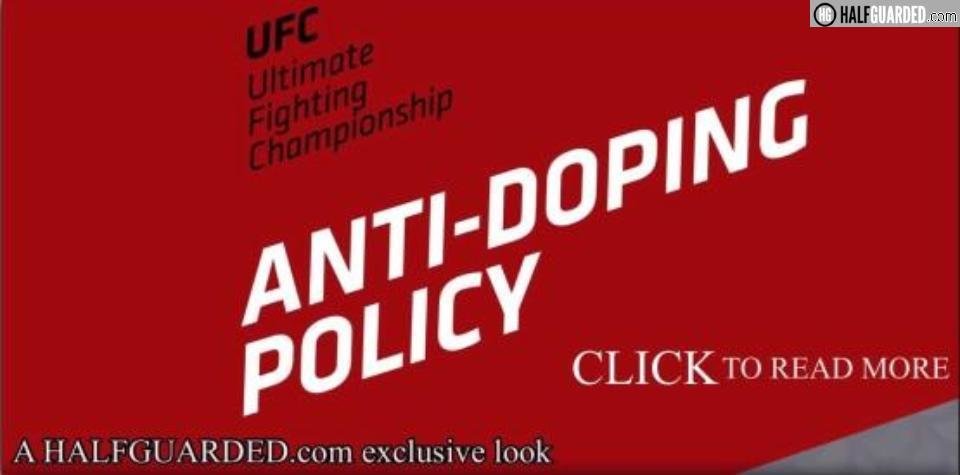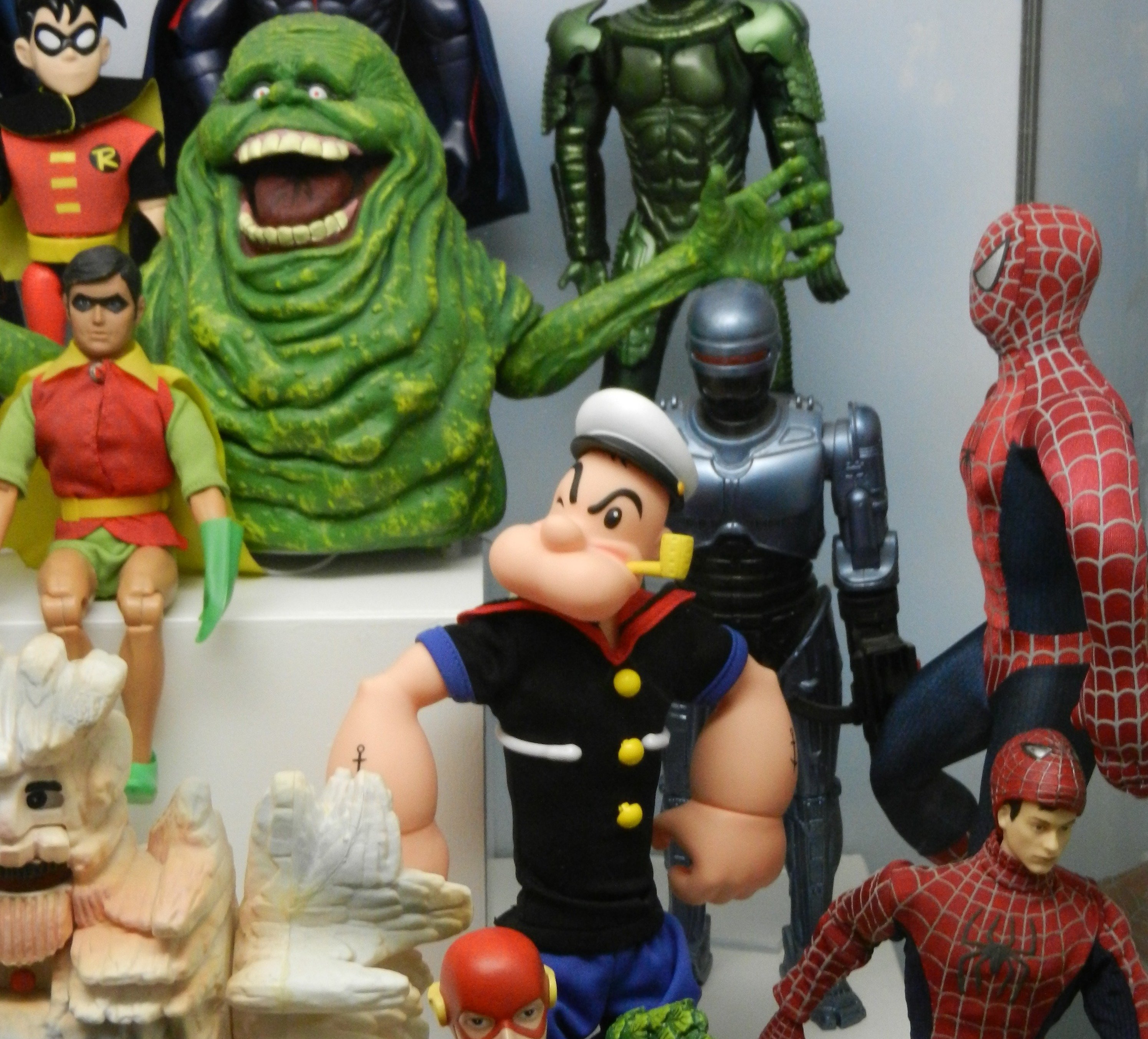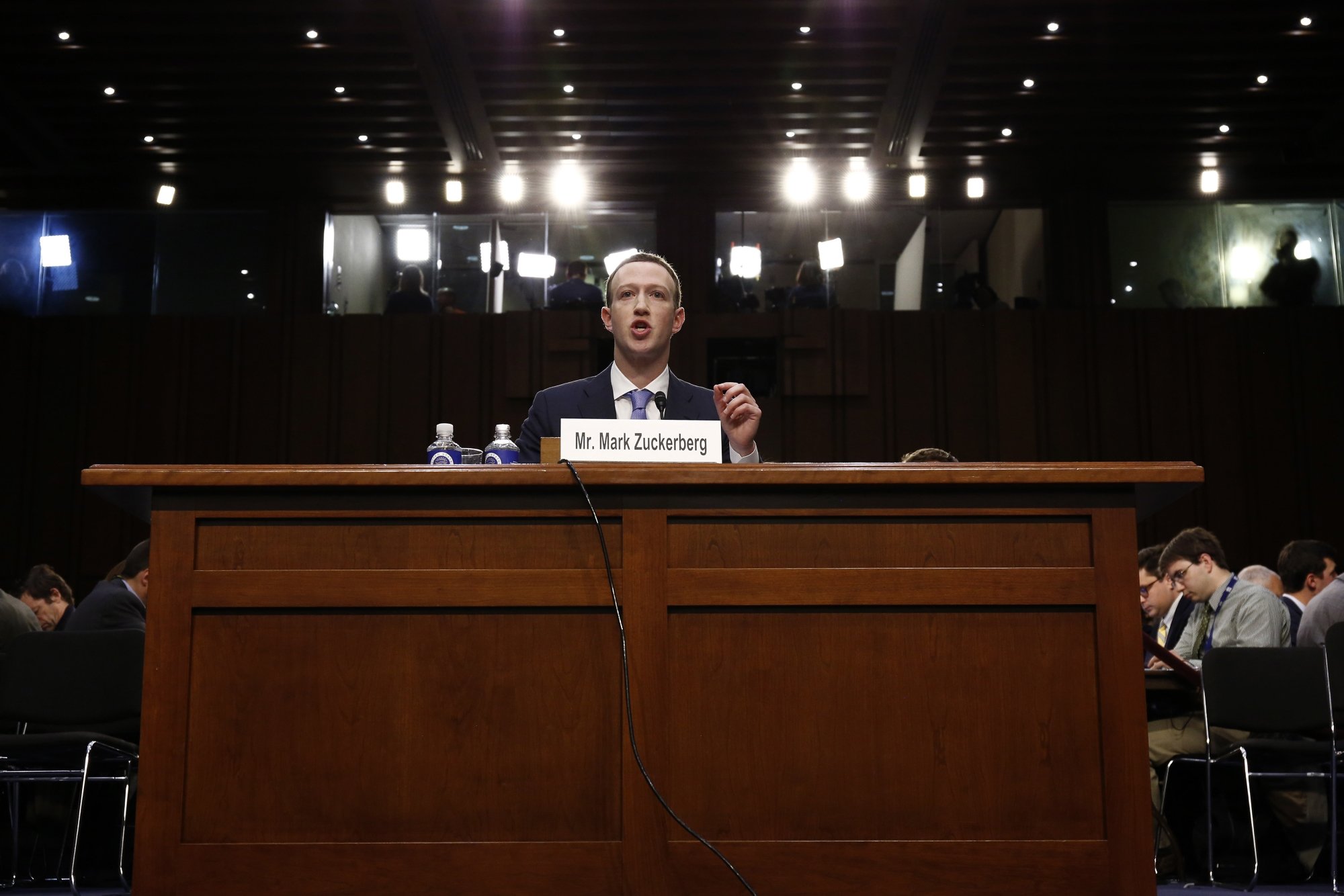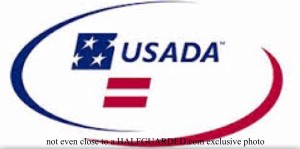Updated as of 5/24/2016: BJ Penn has failed for using an IV during practice. While the emphasis on prohibiting IV usage was to prevent post-fight rehydration from excessive weight-cutting, there was also a secondary purpose of not allowing the IV to mask illegal PED use. For whatever the reason, Penn has likely seen the end of his career without actually having a drug in his system.
Updated as of 11/6/2015:
Our original story is below. We now report, courtesy of numerous reports but MMAJunkie appears to have broken said story, that next week’s UFC Strawweight Championship challenger, Valerie Letourneau, is the first to be a victim of this policy. According to USADA, who oversees the UFC’s drug testing program:
“We are aware of the relationship between Ms. Letourneau and Mr. Lombard, and we have been in contact with both of them to advise them of the rules in regards to prohibited association,” USADA Director of Communications Annie Skinner wrote to MMAjunkie in an email. “After being informed of the rules regarding prohibited association, Ms. Letourneau has since confirmed that Mr. Lombard will not be cornering for her or serving in any other prohibited capacity during his sanction.”
If only someone had told the world this was the case many many moons ago…
ORIGINAL STORY, August 5, 2015.
Gilbert Melendez may never fight again and he doesn’t even know it.
No one likes a cheater. A professional fighter using banned substances is a cheater. He (or she) should be punished. Now that we’ve all agreed on some very basic and simple concepts, let’s discuss the following: The new UFC PED policy created and enforced with USADA that governs fighters will end careers – for even first time offenses.
Everything quoted herein is taken right from the UFC ANTI-DOPING POLICY, found HERE.
Let’s start with the basics:
…specifically, this Anti-Doping Policy shall apply to:
1. All Athletes under contract with UFC from the date of their first contract until the earlier of the termination of their contract with UFC or such time as they give notice to UFC in writing of their retirement from competition; and
2. All Athlete Support Personnel who: participate in any UFC Bout in any capacity, including without limitation as a manager, coach, trainer, second, corner man, agent, official, medical or paramedical personnel, or who have been identified by an Athlete to UFC or USADA as an Athlete Support Person.
Any Athlete, Athlete Support Personnel, or other Person who commits an Anti-Doping Policy Violation while subject to this Policy shall remain subject to this Policy for purposes of results management and discipline after the relationship which originally gave rise to UFC’s or USADA’s authority has ceased.
(Emphasis added)
Athlete Support Personnel is defined as:
Athlete Support Personnel: Any coach, trainer, corner man, second, manager, agent, official, medical or paramedical personnel, or any other Person working with, treating or assisting an Athlete participating in or preparing for a Bout.
In short: if you help someone under contract to the UFC get ready for a fight, you are subject to the new UFC and USADA guidelines.
USADA and UFC then set out circumstances which constitute a failure:
ARTICLE 2: ANTI-DOPING POLICY VIOLATIONS
The purpose of Article 2 is to specify the circumstances and conduct which constitute Anti-Doping Policy Violations. Hearings in doping cases will proceed based on the assertion that one or more of these specific policies have been violated.
Most of the circumstances are what you’d expect: a guy failing a drug test or a guy pulling a Wanderlei Silva and running away from a drug test. But then there’s the Career Killer. A PROHIBITED ASSOCIATION constitutes a Policy Violation:
2.10 PROHIBITED ASSOCIATION
Association by an Athlete or other Person in a professional or sport-related capacity with any Athlete Support Person who:
2.10.1 If subject to the authority of UFC, USADA, another Anti-Doping Organization or Athletic Commission, is serving a period of Ineligibility; or
2.10.2 If not subject to the authority of UFC, USADA another Anti-Doping Organization or Athletic Commission, has been convicted or found in a criminal, disciplinary or professional proceeding to have engaged in conduct which would have constituted a violation of this Anti-Doping Policy if this Anti-Doping Policy had been applicable to such Person. The disqualifying status of such Person shall be in force for the longer of six years from the criminal, professional or disciplinary decision or the duration of the criminal, disciplinary or professional sanction imposed; or
2.10.3 Is serving as a front or intermediary for an individual described in Article 2.10.1 or 2.10.2.
In order for this provision to apply, it is necessary that the Athlete or other Person has previously been advised in writing by USADA, of the Athlete Support Person’s disqualifying status and the potential Consequence of prohibited association and that the Athlete or other Person can reasonably avoid the association. USADA shall also use reasonable efforts to advise the Athlete Support Person who is the subject of the notice to the Athlete or other Person that the Athlete Support Person may, within15 days, come forward to USADA to explain that the criteria described in Articles 2.10.1 and 2.10.2 do not apply to him or her.
(Notwithstanding Article 17, this Article applies even when the Athlete Support Person’s disqualifying conduct occurred prior to the effective date provided in Article 20.5.).
The burden shall be on the Athlete or other Person to establish that any association with Athlete Support Personnel described in Article 2.10.1 or 2.10.2 is not in a professional or sport-related capacity.
(Emphasis added)
If a fighter “associates” with someone – anyone – who is serving a suspension that fighter is then in violation of the Anti-Doping Policy and can be suspended.
Take the hypothetical of Gilbert Melendez. Melendez recently failed for PEDs (this was prior to the formal adoption of these regulations but it still may actually fall under these regulation’s purview – “Notwithstanding Article 17, this Article applies even when the Athlete Support Person’s disqualifying conduct occurred prior to the effective date provided in Article 20.5.”). These rules, as written and as could very, very easily be interpreted, mean that anyone who was training with Melendez after his failure could also be found guilty of a policy violation and subject to suspension.
Nick Diaz, Nate Diaz, Jake Shields, etc… All guys who have trained with Melendez in the past, and likely do so now and in the future, would not be allowed to train with him as Melendez would clearly fit the definition of an association with an Athlete Support Personnel:
Athlete Support Personnel: Any coach, trainer, corner man, second, manager, agent, official, medical or paramedical personnel, or any other Person working with, treating or assisting an Athlete participating in or preparing for a Bout.
The career is not ended because of the length of the suspension (though that doesn’t help) but because under the new UFC/USADA guidelines a suspended fighter is effectively not allowed to train with anyone. And anyone who trains with said fighter is subject to potential punishment.
That, of course, isn’t the only way to violate the Policy. Under Section 2.6.2 of the USADA and UFC Regulations the following is also noted as a failure:
2.6.2 Possession by an Athlete Support Person In-Competition of any Prohibited Substance or any Prohibited Method, or Possession by an Athlete Support Person Out-of-Competition of any Prohibited Substance or any Prohibited Method which is prohibited Out-of-Competition in connection with an Athlete, competition or training, unless the Athlete Support Person establishes that the Possession is consistent with a TUE granted to an Athlete in accordance with Article 4.4 or other acceptable justification.
A fighter’s non-UFC training partner – maybe some guy brought in from a country that permits the use of steroids – could have steroids, get suspended for their possession (even though the guy may be 45 years old and never going to fight), and then because the fighter is associated with said training partner: POLICY VIOLATION! A fighter is not only responsible for knowing what goes in their body, the bodies of everyone in their gym, but also what people they train with simply possess.
Now, of course, the reason for this is easy enough to understand: we don’t want fighters to hide behind the excuse of, “It wasn’t mine, it was my friend’s steroids.” Nonetheless, it is an easy path to a fighter being suspended when they’ve never gained a single competitive advantage.
10.12 STATUS DURING INELIGIBILITY
10.12.1 Prohibition against Participation during Ineligibility
No Athlete or other Person who has been declared Ineligible may, during the period of Ineligibility, participate in any capacity in connection with a UFC Bout, or any match or competition sanctioned or licensed by an Athletic Commission, or participate in any capacity in a competition or activity (other than authorized anti-doping education or rehabilitation programs) authorized or organized by any Signatory, Signatory’s member organization, or a club or other member organization of a Signatory’s member organization.
10.12.2 Violation of the Prohibition of Participation during Ineligibility
Where an Athlete or other Person who has been declared Ineligible violates the prohibition against participation during Ineligibility described in Article 10.12.1, the results of such participation shall be Disqualified and a new period of Ineligibility equal in length up to the original period of Ineligibility shall be added to the end of the original period of Ineligibility. The new period of Ineligibility may be adjusted based on USADA’s assessment of the Athlete or other Person’s degree of Fault and other circumstances of the case.
Where an Athlete Support Person or other Person assists a Person in violating the prohibition against participation during Ineligibility, USADA shall impose sanctions for a violation of Article 2.9 for such assistance.
(Emphasis Added)
Back to Melendez. He could fail a test for PED usage and be suspended two years. Melendez might then go out and help his good friend, Nate Diaz, prepare for a fight (one that doesn’t happen in the stands) and as a result two things could happen:
- Melendez would see an additional two years added to his suspension;
- Diaz could find himself suspended for simply training with Melendez.
And again, note the language: “No Athlete or other Person who has been declared Ineligible may, during the period of Ineligibility, participate in any capacity in connection with a UFC Bout…” This reinforces the previous provision prohibiting a fighter serving a suspension from training with someone preparing for a fight. A suspended fighter is radioactive to a gym.
On some level, this is standard. When a baseball player is suspended, he isn’t allowed to keep practicing with the team. He can’t even play minor league games to keep himself somewhat in shape (not until there’s about a week left on the suspension). For 80 games – half a season – he is persona non grata to his team. This is true in the NFL and elsewhere. And the reasoning isn’t terrible. They cheated and broke the rules and if we let them keep practicing with the team then the punishment is really more just a nice rest to heal up and keep sharp.
But a baseball player can still get in plenty of real practice and stay somewhat sharp without the use of his team and its facilities. They can take batting practice with a personal pitching machine, have some retired friend throw to them, catch pop ups, and so on. It’s not the same as real time playing but they can maintain a degree of fitness. If you’re a track and field runner, maybe it’s nice to have your coaches and access to great facilities, but you can still just find a strip of road and run a lot; find a beach and practice jumping. The best? Of course not but it’ll suffice.
MMA isn’t the same. The nature of the sport requires you to directly compete everyday with a human being. You literally cannot do jiu-jitsu or wrestle without someone else on the other side resisting. And to stay even close to sharp those partners need to be very, very good – usually UFC caliber fighters in their own right. You can’t armbar air and expect it to help. And you certainly can’t armbar air for two years.
Isolating fighters is the end of their career.
Their entire team will have to keep them out of the gym. Anyone realistically good enough to be an adequate sparring partner will stay away because they might either 1. have UFC hopes; 2. be involved with other people who have UFC hopes. One guy in a camp could – in theory – get every single fighter in that camp suspended. The new UFC PED penalties mandate a 21st century shunning.
And again: this is for a first time offense. Not Josh Barnett-like repeat offenders, but some guy who maybe made a stupid choice once and as a result finds himself essentially done for life. Georges St. Pierre’s entire UFC career has (thus far) been nine years. A two year ban would be 20% of his career – and four years would close in on half. That’s the equivalent of suspending a football player for 30+ games or a baseball player for 400 games – for the first offense.
Two years without competing is close enough to a career death sentence; two years without real training is shooting a guy while pulling the switch on the electric chair.
Not to mention the unreliability of the tests being used to convict. Recall, if you will, Nick Diaz testing positive for marijuana after the Anderson Silva fight. Now, it’s no secret that Diaz smokes pot the way most people drink a daily glass of orange juice. And you’re allowed to use recreational drugs under USADA guidelines up to a certain point where they then become an athletic advantage. Makes sense. The rules exist to ensure a fair sporting playing field – not to impose morality.
On the night in question Diaz gave three separate samples: one before his fight and two after. Two of the three came back clean for weed; one said he’d used within the past 24 hours or so.
That Diaz could have three tests and two different results and every single test was taken on the same night, by the same athletic commission, all within roughly five hours or so, and it was the middle test that showed he had weed in his system (a drug that can show up in tests for weeks and months after usage) is all that need be known about drug tests.
This isn’t to say the tests are purposely bad but rather that they aren’t perfect – or even close to perfect. Human physiology being what it is, one man may have trace amounts of something in his fat cells be released due to physical activity and that results in a positive and someone else’s body might not react that way. But no matter what the tests are, having the potential for a career to be ended because one out of three says a fighter took something is genuinely disproportionate punishment.
And it isn’t just Diaz’s marijuana failure. Same commission, same fight, same testing: Anderson Silva. Silva had three tests in the month prior to his fight with Diaz. Two said he used PEDs, one said he didn’t. The one that said he didn’t was the middle test. He either used, stopped, and then started using again (which would be an … odd … approach to cheating) or something is wrong in the process. What if the only test Silva had taken was the middle one which said he was clean? It was – most likely – a false negative. He might be free while Diaz is not. These tests are not nearly as precise and error proof as the public as been lead to believe.
And they can end a career. Heck, they could end an entire camp of fighters’ careers.
If this were the punishment for a 2nd or 3rd time offender maybe it would be more palatable. You use three times and get caught three times you’ve essentially pulled a Jose Aldo and told the world you’ll break the rules and don’t care. But for a first time? C’mon now.
And it should be noted that this rule likely runs afoul of European Union law and may therefore be unenforceable in Europe. And we’ve seen Brazilian authorities actually deport an American drug tester who showed up to test Jose Aldo. (It’s ok, Brazil itself then did the tests and they were clean. Move along. Nothing to see…)
But fear not, there’s a way out! All you have to do is turn state’s evidence:
10.6 ELIMINATION, REDUCTION, OR SUSPENSION OF PERIOD OF INELIGIBILITY OR OTHER CONSEQUENCES FOR REASONS OTHER THAN FAULT
10.6.1 Substantial Assistance in Discovering or Establishing Anti-Doping Policy Violations10.6.1.1
USADA in its sole discretion may suspend all or part of the period of Ineligibility and other Consequences imposed in an individual case in which it has results management authority where the Athlete or other Person has provided Substantial Assistance to USADA or another Anti-Doping Organization, criminal authority or professional disciplinary body which results in:
(i) USADA or another Anti-Doping Organization discovering or bringing forward an Anti-Doping Policy Violation by another Person and the information provided by the Person providing Substantial Assistance is made available to USADA, or
(ii) which results in a criminal or disciplinary body discovering or bringing forward a criminal offense or the breach of professional rules committed by another Person and the information provided by the Person providing Substantial Assistance is made available to USADA.
The extent to which the otherwise applicable period of Ineligibility and other Consequences imposed may be suspended shall be based on the seriousness of the Anti-Doping Policy Violation committed by the Athlete or other Person and the significance of the Substantial Assistance provided by the Athlete or other Person to the effort to eliminate doping in sport. If the Athlete or other Person fails to continue to cooperate and to provide the complete and credible Substantial Assistance upon which a suspension of the period of Ineligibility or other Consequences was based, USADA shall reinstate the original period of Ineligibility and other Consequences.
A fighter could cheat, get caught, and if he can point the finger at someone else (read: a bigger name) he might get his suspension reduced (at the sole and arbitrary discretion of USADA).
Fighters can be stupid. “You are responsible for what goes in your body” is fine and good but when you’re some poor Brazilian who grew up dirt poor in a favela, can’t read English, get a cold, and take some Sudafed – only to then learn that your over the counter sinus medicine ended your career – or that your teammates over the counter cold medicine ended your career – that isn’t justice. That’s razing the earth.
People make mistakes. Fighters can hurt one another and hurt them even more if they’re using PEDs. The penalties therefore are likely to be heavier than those found in other sports. This is fine. This is acceptable. But the goal of drug testing and punishment should be to end PED use not end careers. The UFC and USADA have done just that.











Good post however I was wanting to know if you could write
a litte more on this topic? I’d be very grateful
if you could elaborate a little bit more. Thanks!
You made some decent points there. I looked on the net to find out more about the issue and found most people will go along with your views
on this site.
Funny how this article doesn’t have a problem getting uploaded.
Do you think UFC’s main brain trust is even aware of how far reaching these regulations are? Is it possible they just turned everything over to USADA and don’t even realize what their rules say?
That’s somewhat my guess. Some I’ve talked to have intimidated that to me.>
Dang, this is pretty major. Imagine how many fighter’s careers would be completely over based on this. Anderson Silva, Cyborg, Chael Sonnen, the list goes on.
I’m all for harsher penalties, but I also believe in second chances.